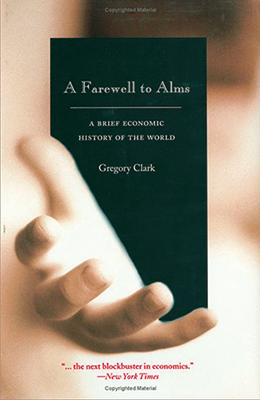
UC Davis researchers describe the enormous impacts that would result from levee failures around Delta islands, like this one at the Jones Tract. (California Department of Water Resources)
Economists inform policy for pressing global concerns
Name any major state, national or global problem. Chances are, UC Davis economists and other policy experts are working behind the scenes to provide the analysis that governments need to address it.
Just this past year, five UC Davis scientists collaborated on a 300-page report released by the Public Policy Institute of California that warns of a looming Delta disaster. The study concludes that the cost of a single episode of Delta failure could reach $40 billion and cause severe disruptions to California’s water supply, affecting drinking water for millions of people and agricultural animals, as well as irrigation water for food crops and water supplies for industry. In addition to sounding the alarm, the report outlines and evaluates options to address the threat.
UC Davis experts also contributed to a 1,700-page study of California schools commissioned by Gov. Arnold Schwarzenegger in preparation for his 2008 “year of school reform” and to an Oxfam report that concluded that poor families living in cotton-producing areas of Africa would see their incomes rise by up to 6 percent if the United States eliminated subsidies to American cotton farmers.
From faltering levies to world hunger, understanding a problem is fundamental to solving it. Economists at UC Davis, in addition to teaching and conducting research, are informing the policymakers who tackle our most pressing problems.
2007 ECONOMICS

‘A Farewell to Alms’ sparks controversy among economists
Countering the prevailing theory that the Industrial Revolution was sparked by the sudden development of stable political, legal and economic institutions in 17th-century Europe, UC Davis Department of Economics Chair Gregory Clark shows in his book, A Farewell to Alms, that such institutions existed long before industrialization. He argues instead that these institutions gradually led to deep cultural changes by encouraging people to abandon hunter-gatherer instincts — violence, impatience and economy of effort — and adopt economic habits — hard work, rationality and education. Clark’s book was released to significant praise in national and regional press including The New York Times, The Washington Post, The Economist and Financial Times.
U.S. cotton subsidies hurt West African poor
Eliminating U.S. cotton subsidies to American farmers would raise the world price for cotton by 6 to 14 percent, increase prices that West African farmers receive for their cotton by 5 to 12 percent and boost the farmers’ incomes by 2.3 to 5.7 percent, UC Davis agricultural economists report in a study commissioned by the international relief and development organization Oxfam America. Added income from increased cotton prices could feed an additional million children for a year or pay school fees for at least two million children living in extremely poor West African cotton-growing households, the researchers concluded. Oxfam is working to curtail cotton subsidies in the 2007 Farm Bill. The organization argues that the subsidies do little to help American farmers and rural communities while hurting farmers in developing countries.
Newspaper downsizing may backfire
Newspapers that cut budgets in response to shrinking profits risk triggering a “suicide spiral,” according to a study by marketing professor Prasad Naik, published in the April 2007 issue of the Journal of Marketing. Economic theory holds that companies do best when they operate at an optimal balance of investment and revenue known as the profit “sweet spot.” If investment in quality is too low, quality and profits suffer. But beyond a certain point, quality enhancements erode profits. The researchers concluded that contrary to common wisdom, most newspapers are investing too little in quality.
